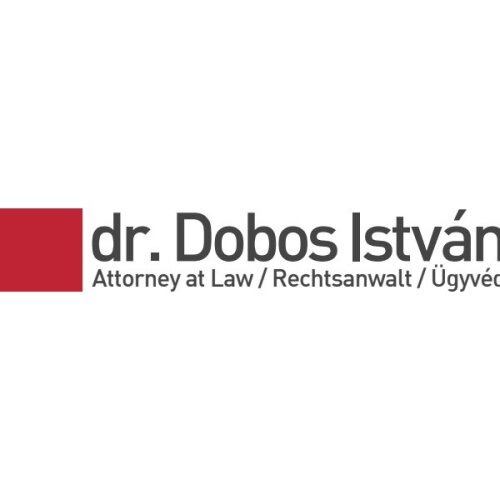Best Nonprofit & Charitable Organizations Lawyers in Hungary
Share your needs with us, get contacted by law firms.
Free. Takes 2 min.
Or refine your search by selecting a city:
List of the best lawyers in Hungary
About Nonprofit & Charitable Organizations Law in Hungary
In Hungary, nonprofit and charitable organizations play a significant role in fostering social welfare, cultural development, and community engagement. These organizations, often registered as associations, foundations, or public benefit companies, operate under the legal framework that governs their formation, management, and operation. Hungarian law provides specific guidelines for establishing nonprofit entities, defining their objectives, and ensuring they operate in the public interest. Furthermore, these organizations are subject to various tax regulations and may receive benefits, such as tax exemptions and subsidies, to support their charitable endeavors.
Why You May Need a Lawyer
Engaging legal counsel can be crucial for nonprofit and charitable organizations at several stages, including:
- Establishment and Registration: Navigating the legal requirements to form a nonprofit entity in Hungary can be intricate. Lawyers can ensure compliance with statutory mandates.
- Governance and Compliance: Legal experts help in drafting bylaws, defining governance structures, and advising on compliance issues, mitigating potential legal risks.
- Tax Matters: Understanding taxation and fulfilling the conditions for tax exemptions can be complex, and professional advice can assist in optimizing these processes.
- Contracts and Agreements: Legal assistance is vital when drafting agreements related to partnerships, donations, sponsorships, or other operational contracts.
- Dispute Resolution: Lawyers can facilitate dispute resolution, whether internal (e.g., board disagreements) or external (e.g., with third parties).
- Funding and Grants: Seeking grants and securing funding may require adherence to specific legal obligations that an attorney can elucidate.
Local Laws Overview
Hungary's legal landscape for nonprofit organizations is primarily outlined in the Civil Code and specific acts such as the Act CLXXV of 2011 on the Right of Association, the Nonprofit Status, and the Operation and Support of Civil Organizations. Key legal provisions include:
- Formation: Nonprofit entities must be established with specific non-commercial objectives, registered with the competent court, and may be required to adopt certain bylaws.
- Public Benefit Status: Organizations can apply for public benefit status, granting them certain privileges, if they meet criteria around social utility and financial transparency.
- Reporting Obligations: Nonprofits are mandated to maintain transparency through regular financial reporting and statutory audits, depending on their size and turnover.
- Taxation: Nonprofits may benefit from tax reliefs if they fulfill requirements regarding their operational scope and organizational objectives.
- Dissolution: Legal guidelines also delineate procedures for the dissolution of these organizations, emphasizing the need for asset distribution in accordance with their founding charter.
Frequently Asked Questions
What types of nonprofit organizations exist in Hungary?
Nonprofit organizations in Hungary may be categorized primarily as associations, foundations, and public benefit companies, each serving various societal roles.
How are nonprofit organizations governed?
They are governed by boards or committees as specified in their bylaws, which define the roles, responsibilities, and governance structure of the organization.
What legal documentation is required to establish a nonprofit?
Essential documents include articles of association or foundation charter, registration form, bylaws, and possibly other specific documents based on the entity type.
Are nonprofits eligible for tax exemptions in Hungary?
Yes, nonprofits that meet certain criteria, such as obtaining public benefit status, may qualify for tax exemptions on certain activities.
How can a nonprofit obtain public benefit status?
Organizations must apply for this status, demonstrating they promote societal welfare and adhere to financial and operational transparency standards.
What reporting requirements must nonprofits adhere to?
Regular submission of financial reports and adherence to auditing requirements based on organizational size and income are mandatory.
Can foreign entities establish nonprofits in Hungary?
Yes, foreign entities can establish nonprofits, but they must comply with Hungary's specific legal and registration requirements.
What is the legal process for dissolving a nonprofit?
Dissolution involves legal procedures detailed in the founding documents and Hungarian law, ensuring asset distribution aligns with the entity's purpose.
Are there specific operational restrictions for nonprofits?
Yes, nonprofits must focus on activities that align with their stated missions and avoid engaging in profit-making endeavors beyond permitted thresholds.
What funding opportunities exist for nonprofits in Hungary?
Funding can come from public grants, private donations, sponsorships, and EU funds, subject to legal stipulations and eligibility criteria.
Additional Resources
For more assistance, consider reaching out to the following:
- Hungarian Ministry of Human Capacities: Offers guidelines and support for civil organizations.
- Budapest Civil Information Center: Provides resources, guidance, and legal aid for nonprofits.
- National Office for the Judiciary: Manages the registration and oversight of organizations and can be a vital contact point.
- National Tax and Customs Administration: Offers information on taxation rules and benefits applicable to nonprofit entities.
Next Steps
If you need legal assistance in the field of nonprofit and charitable organizations, consider the following steps:
- Identify Your Needs: Clearly outline your organization's legal requirements or concerns.
- Consult a Specialist Lawyer: Seek lawyers with expertise in Hungarian nonprofit law for a consultation.
- Prepare Documentation: Gather all pertinent documents for your organization, such as bylaws, registration certificates, and financial records.
- Engage Legal Services: Work with your legal counsel to address your concerns, whether they relate to compliance, governance, or legal disputes.
- Follow Up: Stay informed about changes in relevant laws and ongoing compliance obligations to mitigate any legal risks.
Lawzana helps you find the best lawyers and law firms in Hungary through a curated and pre-screened list of qualified legal professionals. Our platform offers rankings and detailed profiles of attorneys and law firms, allowing you to compare based on practice areas, including Nonprofit & Charitable Organizations, experience, and client feedback.
Each profile includes a description of the firm's areas of practice, client reviews, team members and partners, year of establishment, spoken languages, office locations, contact information, social media presence, and any published articles or resources. Most firms on our platform speak English and are experienced in both local and international legal matters.
Get a quote from top-rated law firms in Hungary — quickly, securely, and without unnecessary hassle.
Disclaimer:
The information provided on this page is for general informational purposes only and does not constitute legal advice. While we strive to ensure the accuracy and relevance of the content, legal information may change over time, and interpretations of the law can vary. You should always consult with a qualified legal professional for advice specific to your situation.
We disclaim all liability for actions taken or not taken based on the content of this page. If you believe any information is incorrect or outdated, please contact us, and we will review and update it where appropriate.
Browse nonprofit & charitable organizations law firms by city in Hungary
Refine your search by selecting a city.

















